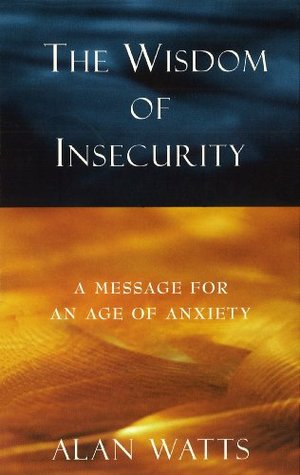More on this book
Community
Kindle Notes & Highlights
Read between
March 18 - March 27, 2020
For man seems to be unable to live without myth, without the belief that the routine and drudgery, the pain and fear of this life have some meaning and goal in the future.
Paradox as it may seem, we likewise find life meaningful only when we have seen that it is without purpose, and know the “mystery of the universe” only when we are convinced that we know nothing about it at all.
The power of memories and expectations is such that for most human beings the past and the future are not as real, but more real than the present.
Words and measures do not give life; they merely symbolize it. Thus all “explanations” of the universe couched in language are circular, and leave the most essential things unexplained and undefined.
The brain can only assume its proper behaviour when consciousness is doing what it is designed for: not writhing and whirling to get out of present experience, but being effortlessly aware of it.
To understand music, you must listen to it. But so long as you are thinking, “I am listening to this music,” you are not listening. To understand joy or fear, you must be wholly and undividedly aware of it. So long as you are calling it names and saying, “I am happy,” or “I am afraid,” you are not being aware of it.
Words merely symbolise reality and are not reality, therefore trying to verbalise experience is counterproductive, as one should simply give into and experience the present regardless of its quality.
“the mystery of life is not a problem to be solved, but a reality to be experienced.”
The moment must be what it always is—all that you are and all that you know.
The meaning and purpose of dancing is the dance. Like music, also, it is fulfilled in each moment of its course. You do not play a sonata in order to reach the final chord, and if the meanings of things were simply in ends, composers would write nothing but finales.
It is easy to see that most of the acts which, in conventional morals, are called evil can be traced to the divided mind. By far the greater part of these acts come from exaggerated desires, desires for things which are not even remotely necessary for the health of mind and body, granting that “health” is a relative term.
This, rather than any mere emotion, is the power and principle of free action and creative morality. On the other hand, the morality of rules and regulations based on rewards and punishments, even when these are as intangible as the pain of guilt and the pleasure of self-respect, has no relation to free action.
By thoughts, or mental words, we distinguish or “make” things. Without thoughts, there are no “things”; there is just undefined reality.
In the beginning God created the heaven and the earth.And the earth was without form, and void; and darkness was upon the face of the deep. And the Spirit of God moved upon the face of the waters.And God said, Let there be light: and there was light.
God = symbol of present experience. One creates reality through thoughts and words that define the experience.
For when the mind is divided, and “I” wants to get away from present experience, the whole notion of a supernatural world is its happy hide-out.
The moment is the “door of heaven,” the “straight and narrow way that leadeth unto life,” because there is no room in it for the separate “I.”


